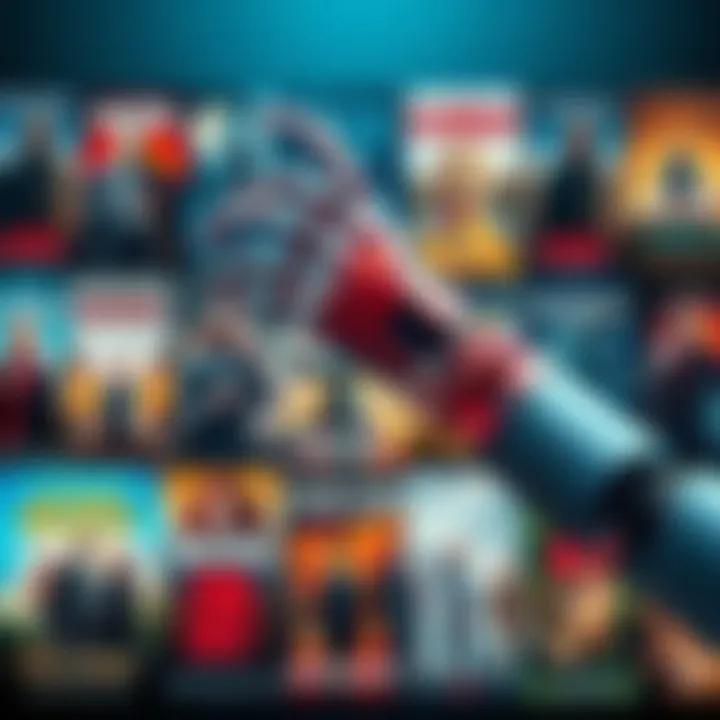Movie Reviews Under Fire | Are Bots Faking Ratings?
Edited By
Nora Sinclair

A growing number of moviegoers express skepticism over online movie ratings, arguing that real-life reactions don’t match inflated digital scores. As discontent rises, viewers suspect that forums are teeming with bots and paid shills skewing the truth about certain films.
Audience Feedback Sparks Concerns
Many viewers are voicing disapproval after sitting through a recent installment at their local theaters. The film, described by one critic as "absolute, childish garbage," left several couples leaving midway through. Conversations outside the cinema centered around what attendees deemed the film's catastrophic quality, contradicting its 7.6 rating on IMDb and 85% on Rotten Tomatoes.
"There's no way these reviews are real."
Viewer Sentiment vs. Online Ratings
The apparent disconnect between audience sentiments and online reviews has led many to suspect manipulation.
Real-life reactions contradict online scores: Users reported seeing small groups leaving theaters, while online ratings suggest broad favorable acceptance.
Belief in bots and shills: Many believe online forums are filled with bots and users incentivized to boost ticket sales through favorable reviews. One user remarked, "The disconnect between real-life reactions and online scores is getting super sus."
Claims of historical manipulation: Some users noted that even reputable critics have been influenced by financial incentives, echoing past practices of well-known critics who were paid to promote certain films.
A Deepening Distrust
The conversation surrounding this film, characterized by negative feedback, raises questions about the integrity of online movie review platforms. Some insist, "You can’t make an informed assessment of quality if you dipped out after five minutes," illustrating the frustrations faced by those who find themselves unable to relate to the praised narratives online.
Key Points to Consider
💡 Many people believe reviews posted online are artificially elevated through bots or paid promotions.
🔍 Real-life cinema-goers are showing a stark contrast in their reviews compared to digital ratings, igniting widespread skepticism.
🧐 "Are we over 20?" one commenter quipped, questioning the maturity of audiences in the current media landscape.
This debate about movie reviews and their authenticity highlights broader concerns about the role of digital influences in shaping public perception. Are real opinions getting drowned out by digital noise, or is there an overlooked power skewing how films are rated and perceived?
The Bottom Line
While discussions keep swirling about the validity of current film ratings, it remains clear: people are feeling something is off. The cinema experience is meant to elicit genuine reactions, not stock-piled scores. If audiences continue to feel marginalized by inflated ratings, the conversation around what we trust online will keep growing.
What Lies Ahead for Online Ratings?
There's a strong chance that as skepticism grows, more people will turn to social media and local forums to share their genuine experiences with films, rather than relying solely on aggregated online scores. Experts estimate around 60% of moviegoers may begin prioritizing personal recommendations over digital ratings in the coming year. This shift could pressure filmmakers and studios to place greater importance on authentic audience reactions, potentially leading to a healthier conversation surrounding film quality and review integrity. If current trends continue, we could see a rise in platforms that emphasize real viewer feedback while minimizing the influence of bots and paid promotions.
Echoes of the Past: The Art World
This situation mirrors the late 19th century art world, where the rise of critics and public opinion on platforms like the salon led to a disconnect between the art elite and the general populace. Many artists faced rejection despite popular support due to biases influenced by critics who might have been swayed by financial motivations. Just as then, today’s audience seeks genuine reflection of their enjoyment amid an overwhelming digital chorus, reminding us that whether in art or cinema, true appreciation often starts with personal experience.
